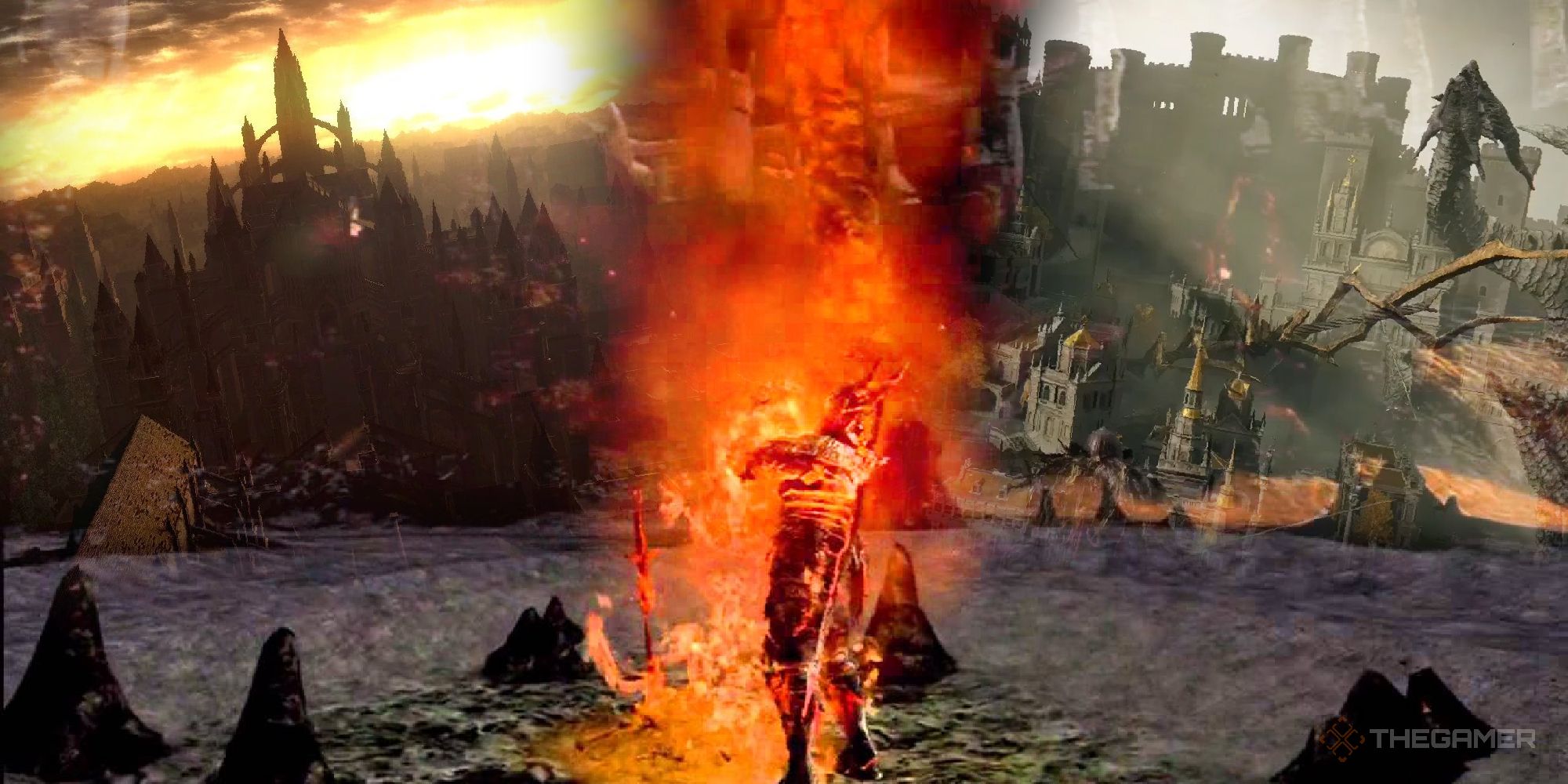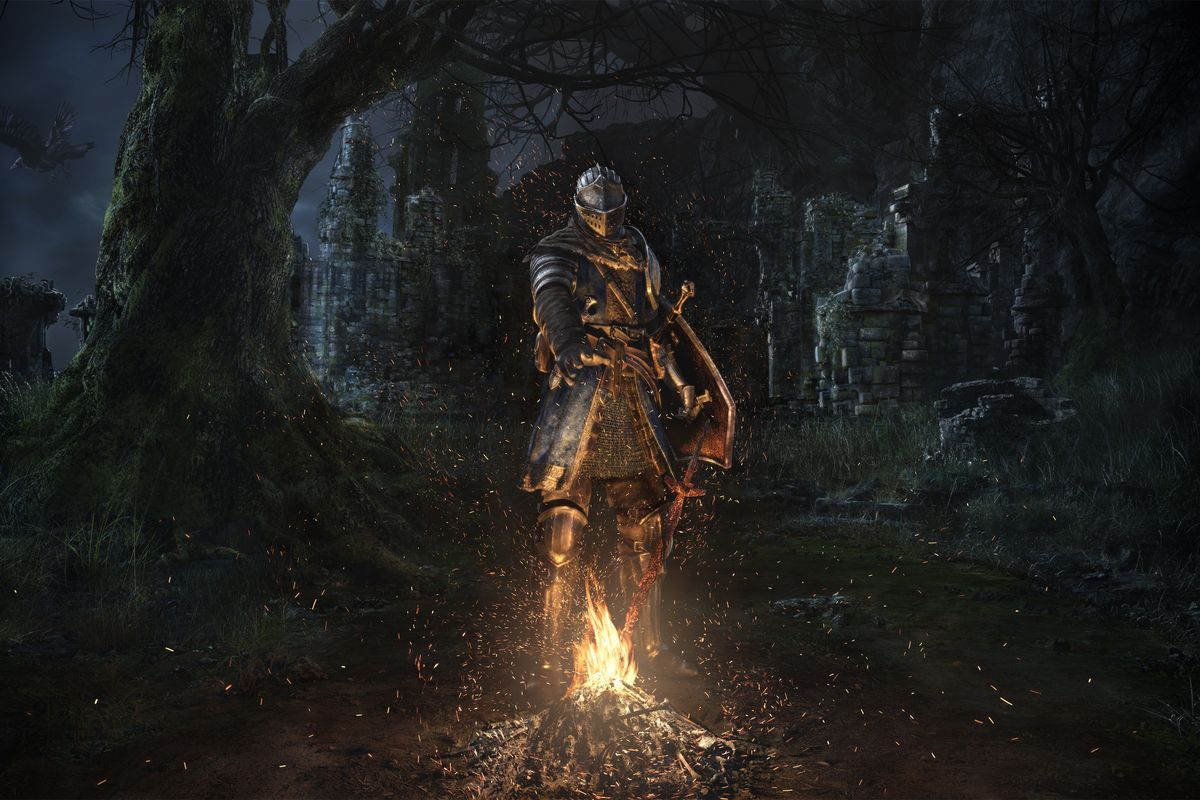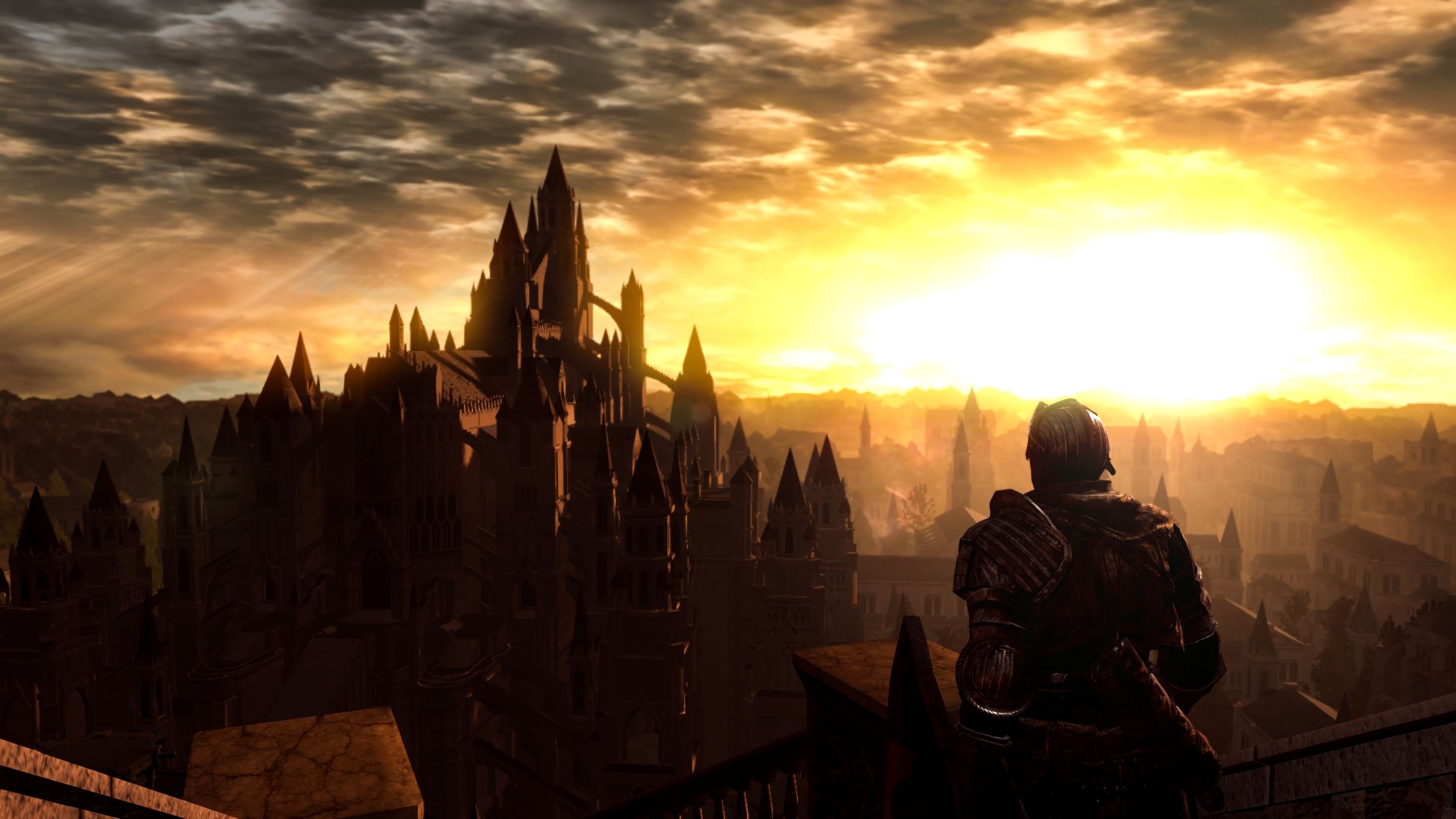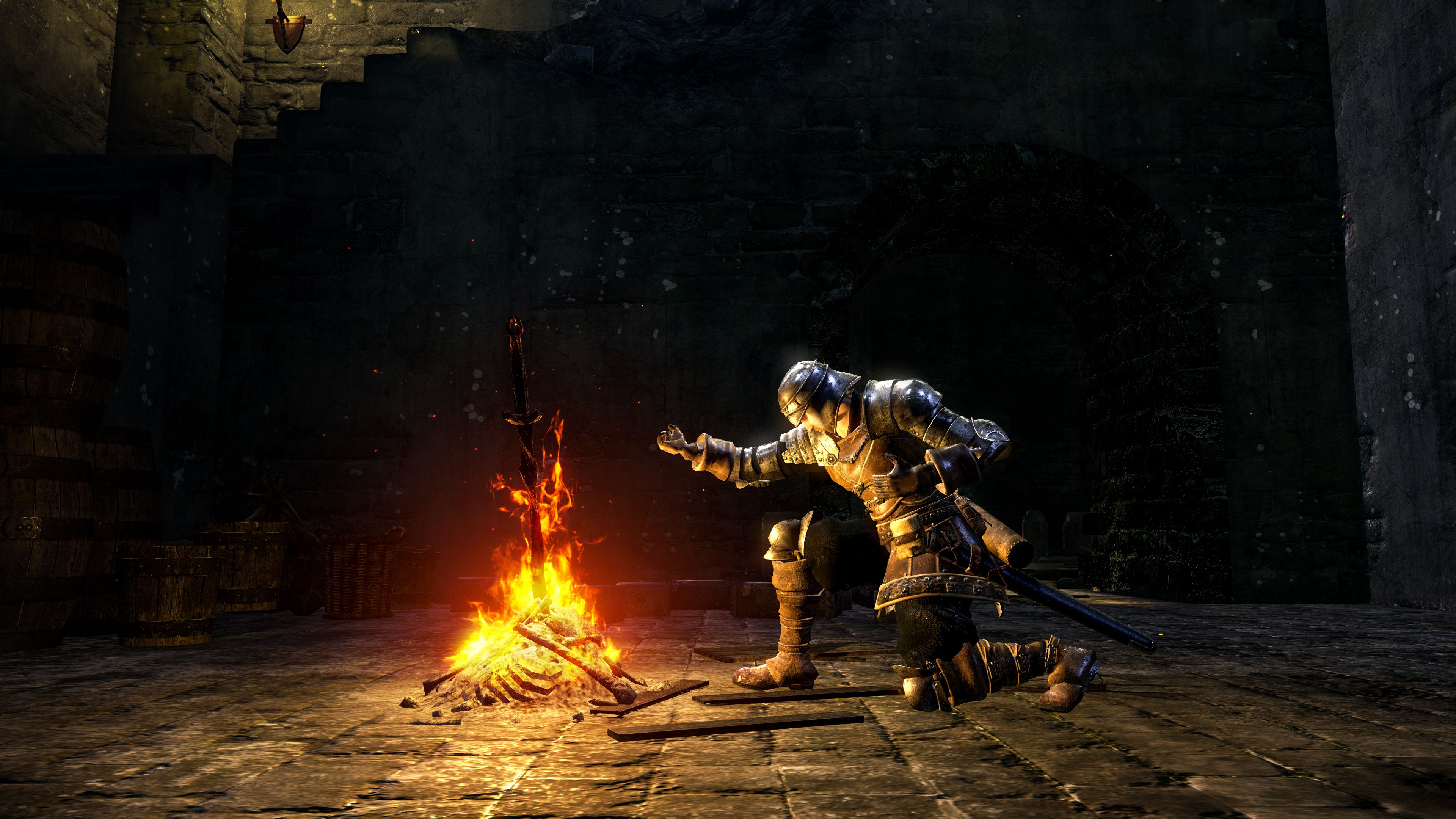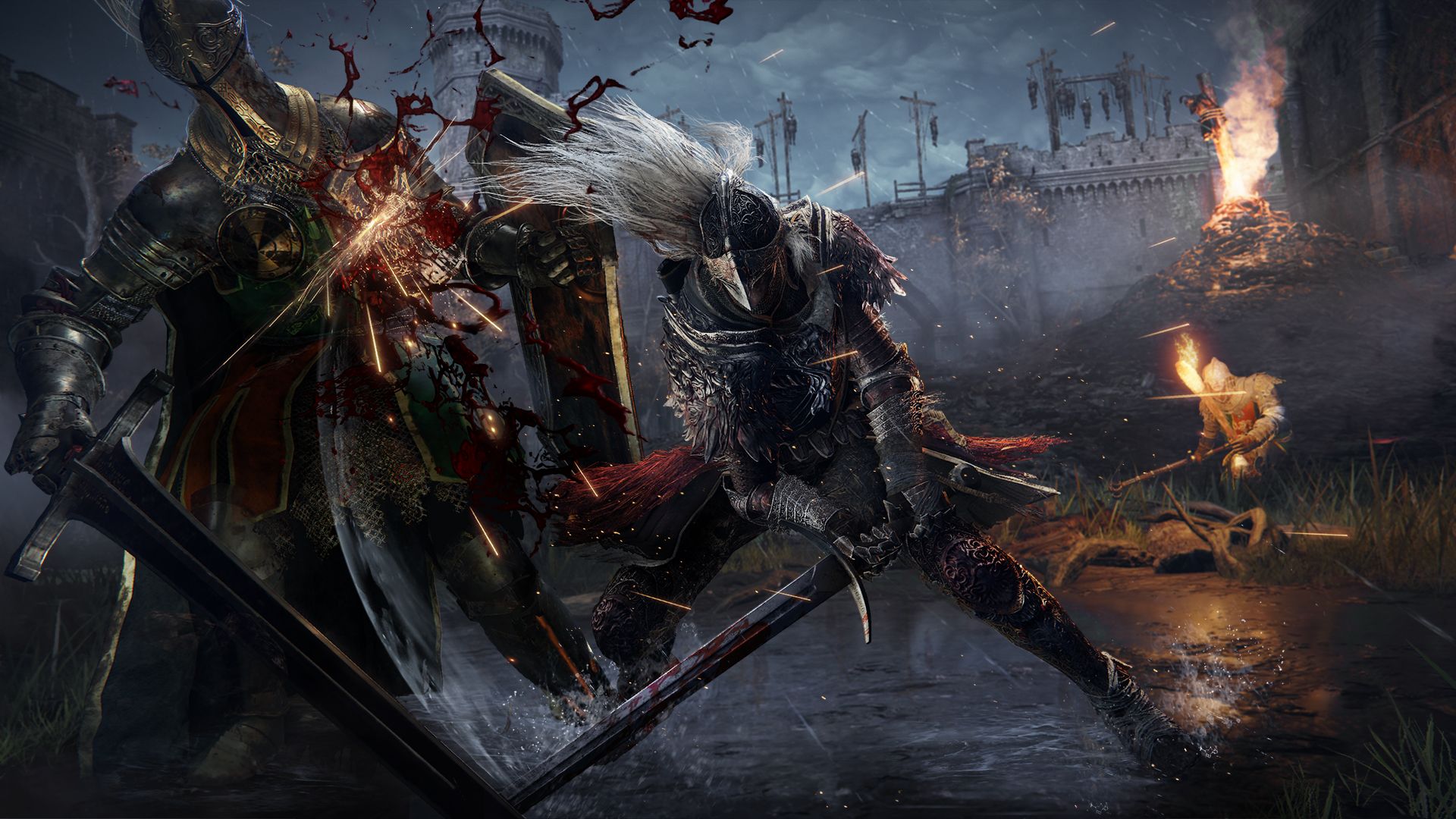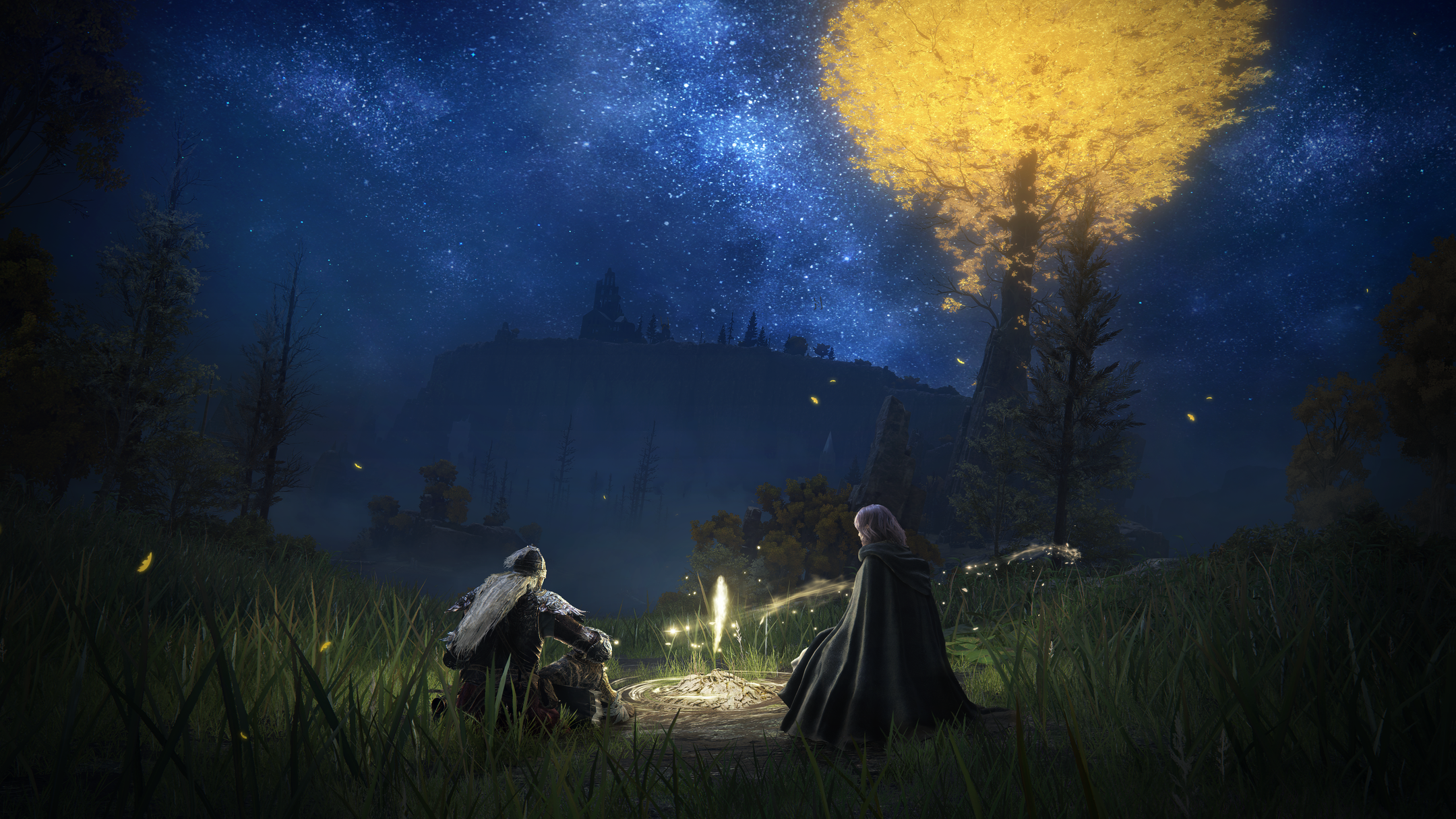In a series packed with an obscure, puzzle-piece approach to lore, working out what’s actually happening in Dark Souls is a task as difficult as the series’ bosses. But despite their seeming refusal to tell the player anything, the Dark Souls series presents a story that might hit a little too close to home for everyone living under late capitalism.
The latest game in developer FromSoftware’s arsenal, Elden Ring, is in many ways a spiritual successor to Dark Souls - but has a very different feel and message to its predecessors. But to work out what’s going on with Elden Ring, we’ll first need to dig into Dark Souls - and explore where the themes of FromSoftware’s latest masterpiece started.
Without a clear guide or purpose, you’re invited to meander through the kingdoms of Lordran, Drangleic, and Lothric in which the Dark Souls trilogy takes place. Much of the story has already happened - wars were waged, kingdoms fell, and now you’ve arrived to stop the world from crumbling even further. As you wander through these fallen kingdoms and failed empires, the game invites you to ask: is this all worth saving?
Probably not.
In the first Dark Souls, the iconic, immaculate city of Anor Londo is a lie. The golden land of the gods has gone dark, and the sun itself is there to fool you into thinking the world is worth saving. The age of fire is meant to end - but instead, countless undead are fooled into throwing themselves into the fire to keep the embers smouldering and a crumbling order in power - a process called linking the fire.
The age persists, fuelled literally by the burning corpses of the undead, all the way through to Dark Souls 3. The final game of the trilogy sees the world - and time itself - on the brink of implosion. The Age of Fire is shown to be an unsustainable and increasingly horrifying state of existence.
The Age of Fire, which you’re tasked with saving, is the reason the world is crumbling. Blind to consequences, the gods and rulers of the world drive undead like you onwards, doing little more than delaying the increasingly disastrous inevitable outcome.
By the end, you’re meant to be questioning it all - whether you really want to keep this world going, knowing it will simply fall into another cycle of crisis and misery.
Added to the hopeless state of the world is the hopeless state of the undead. Countless undead are risen to link the fire - and as such, you’re not really a true protagonist in the Dark Souls series. You might fight the bosses, light the bonfires, and choose the ending, but if you do as you’re told and link the fire, you are simply another pawn serving the interests of the gods.
However, in each game, right from the off you’re told you’re special. You’re the Chosen Undead, the Bearer of the Curse, the Ashen One. But Dark Souls is playing with you - selling you a false narrative to trick you into thinking you’re destined to succeed, destined for greatness.
You were never the only one on this quest - the promise is a lie.
The world is populated with people like you - and you see them travel the same paths as yourself, doomed to die over and over again until you give up or finally, against all odds, succeed. Undead fight alongside you as you go, with almost all eventually going hollow and losing themselves to madness - a reflection of your fate as an undead if you fail to fulfil your duty. A punishment for not fulfilling the will of the gods fast enough.
For many of us in the real world, our lives consist of a repetitive daily routine of work, grinding in a seemingly pointless struggle, where to succeed is to defy incredible odds. Headway made in one day is figuratively reset when we rest, having to wake up and do the whole thing over again, perpetually. The core gameplay loop of Dark Souls is a near-perfect match for this pattern - and in real life as in Dark Souls, this repetitive cycle grinds us down. It is too gruelling, hard, brutal, and fruitless for most to keep going, and those that succeed end up leaving those less fortunate behind.
Similarly, our world itself and the structures that created it seem to be falling apart. Those in power are increasingly detached from the realities of ordinary living and what the coming years might hold, refusing to act as existential threats mount. Our future looks set to involve global warming, financial crises, and ecological disaster - our own slowly dying flame bringing darkness to the world. The inaction from those in power, and the passing of responsibility to those they expect to sacrifice themselves to keep the embers burning is a very familiar parallel.
With its high-fantasy setting, gods-driven quest to save the world and themes of collapse, undeath, and corruption, Elden Ring is FromSoftware’s true spiritual successor to the Souls series - but its story and message are a little different.
In contrast to Souls, Elden Ring is much less bleak. That said, the colour and life of The Lands Between is still haunted by the grotesque, eldritch horror of the deity-adjacent Two Fingers that set you on your quest to become Elden Lord and reforge the Elden Ring, saving the world from crumbling. What’s more, mysterious outer gods are suggested to have the true power over the world you inhabit, gently reminding you that the world is ruled over by powers you, as a player, never really influence or understand. Along with the game’s notorious difficulty, all of Dark Souls’ themes of alienation, powerlessness, and success against extreme odds are still there.
The player is also seemingly granted more agency in Elden Ring - given six possible endings and paths to becoming Elden Lord. This amount of choice is slightly false, though - four of the six endings play out with a largely identical cinematic, with a powerful god still in control. The other two endings similarly play out with a force other than yourself in control - be that the moon witch Ranni and the mysterious Dark Moon, or the world-ending Flame of Frenzy. In short, much like being the Chosen Undead in Dark Souls, earning the title of Elden Lord is far less significant in the world of the Elden Ring than it may seem. It’s a ceremonial position.
Elden Ring lets you succeed where Dark Souls never really did - but guides you to radically question what that success actually means.
If Dark Souls is about capitalism, struggle, and fighting to save a world only to realise that the world might not be worth saving in its current state, then Elden Ring goes a step further. What if, to truly change and save the world, we can’t just act within the existing power structures of society or fulfil an idea of success that we’ve been told is what’s necessary? What if, when all else has failed, we have to try something new?

